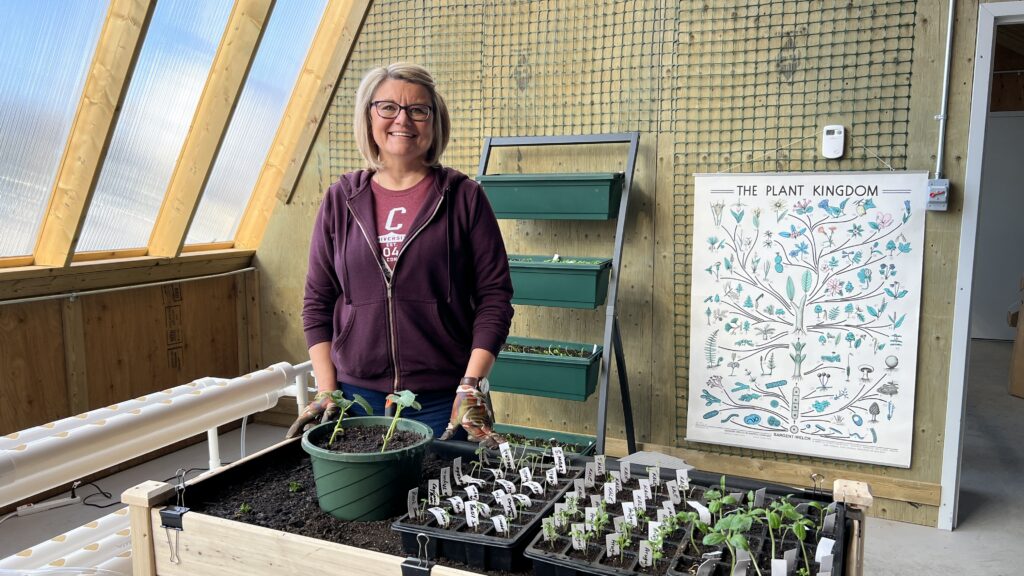Near-Net-Zero Greenhouse Operating on UCN Campus
(The Pas, MB) – University College of the North (UCN) is operating a low (near‐net‐zero) energy
greenhouse on The Pas campus.
The construction of the greenhouse began in 2020 in partnership with the Composites Innovations
Centre (recently rebranded as CIC Engineering) with the primary purpose of strengthening food
sovereignty, community health, and student learning opportunities within northern communities.
The near‐net‐zero facility uses Biofibre blocks as the main heat reservoir. The blocks absorb light energy
and heat the building with minimal energy input. The Biofibre blocks are built based on a Canadian
design and are made from Canadian sourced hemp. The blocks are designed to capitalize on heat
retention and allows year‐round production.
Production within the greenhouse will incorporate multiple growth systems to best achieve the needs of
the community and to test viability of these systems in a northern climate.
Currently, two of three growing systems have been established. Seedlings for a variety of herbs and
produce have been planted and are starting to grow including tomatoes, peppers, cucumbers, beans,
spinach, lettuce, arugula, green onions and herbs such as basil, thyme, rosemary, chives. A majority of
the produce will be harvested for use in the campus cafeteria by Culinary Arts students and staff.
“The greenhouse grows vegetables but also produces research and student education,” said Katrin
Stedronsky, UCN Assistant Professor in the Faculty of Arts, Business, and Science. “One of the many
classroom ideas is to provide a living laboratory space for botany, biology, and environmental course
work.”
The greenhouse helps to study exploration of growing produce north of the 53rd parallel. If successful,
this type of greenhouse building will be tested further north. Project participants hope to address food
sovereignty in northern Manitoba communities.
“The bigger picture here is to provide a greenhouse design that is suitable, with minimal energy input
from other sources, for incorporation into Northern communities to address current issues around food
sovereignty in the north,” said Stedronsky.
University College of the North provides learning opportunities to northern communities while
respecting diverse Indigenous and northern values.

